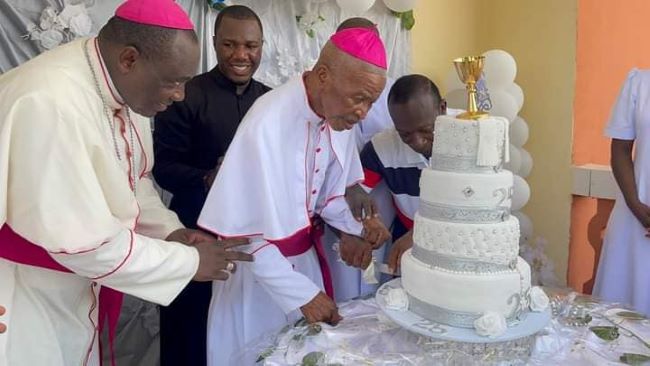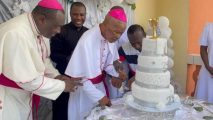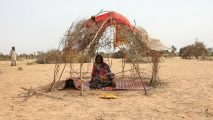Categories
Archives
- April 2024
- March 2024
- February 2024
- January 2024
- December 2023
- November 2023
- October 2023
- September 2023
- August 2023
- July 2023
- June 2023
- May 2023
- April 2023
- March 2023
- February 2023
- January 2023
- December 2022
- November 2022
- October 2022
- September 2022
- August 2022
- July 2022
- June 2022
- May 2022
- April 2022
- March 2022
- February 2022
- January 2022
- December 2021
- November 2021
- October 2021
- September 2021
- August 2021
- July 2021
- June 2021
- May 2021
- April 2021
- March 2021
- February 2021
- January 2021
- December 2020
- November 2020
- October 2020
- September 2020
- August 2020
- July 2020
- June 2020
- May 2020
- April 2020
- March 2020
- February 2020
- January 2020
- December 2019
- November 2019
- October 2019
- September 2019
- August 2019
- July 2019
- June 2019
- May 2019
- April 2019
- March 2019
- February 2019
- January 2019
- December 2018
- November 2018
- October 2018
- September 2018
- August 2018
- July 2018
- June 2018
- May 2018
- April 2018
- March 2018
- February 2018
- January 2018
- December 2017
- November 2017
- October 2017
- September 2017
- August 2017
- July 2017
- June 2017
- May 2017
- April 2017
- March 2017
- February 2017
- January 2017
- December 2016
- November 2016
- October 2016
- September 2016
- August 2016
- July 2016
- June 2016
Featured
 Bishop Francis T. Lysinge @ 25!
Bishop Francis T. Lysinge @ 25!  Understanding the Biya Francophone regime’s support for the Israeli genocide in Gaza
Understanding the Biya Francophone regime’s support for the Israeli genocide in Gaza  Poverty under Biya: Cameroonians embrace Chinese language for brighter futures
Poverty under Biya: Cameroonians embrace Chinese language for brighter futures  Cameroon is broken: Who can fix it?
Cameroon is broken: Who can fix it?  Ethiopia: U.S Senator Cardin Statement on the Killing of Bate Urgessa
Ethiopia: U.S Senator Cardin Statement on the Killing of Bate Urgessa
Most Commented Posts
 4 Anglophone detainees killed in Yaounde
4 Anglophone detainees killed in Yaounde
19 comments Chantal Biya says she will return to Cameroon if General Ivo Yenwo, Martin Belinga Eboutou and Ferdinand Ngoh Ngoh are sacked
Chantal Biya says she will return to Cameroon if General Ivo Yenwo, Martin Belinga Eboutou and Ferdinand Ngoh Ngoh are sacked
13 comments Anglophone Nationalism: Barrister Eyambe says “hidden plans are at work”
Anglophone Nationalism: Barrister Eyambe says “hidden plans are at work”
12 comments The Anglophone Problem – When Facts don’t Lie
The Anglophone Problem – When Facts don’t Lie
12 comments Largest wave of arrest by BIR in Bamenda
Largest wave of arrest by BIR in Bamenda
10 comments
Latest Tweets
Featured
-

Bishop Francis T. Lysinge @ 25!
-

10 Million Cameroonians lived on less than $1.80 per day
-

Football: Xavi to remain as Barcelona coach
-

Biya regime delays bond sale amid regional market strain
-

Historic agreement between Nigeria and Cameroon to tackle wildlife crime
-

Southern Cameroons refugees in Nigeria receive farm seedlings
-

Douala: Investment Forum wraps up with honors for investment champions
© Cameroon Concord News 2024
5, March 2020
Warring parties in Southern Cameroons must stop attacks on civilians: NGOs 0
Two aid agencies on Wednesday called on Cameroon’s army and separatist fighters to halt attacks on civilians in a conflict between English-speaking separatists and government forces in a predominantly French-speaking country.
Rights groups have accused both sides of atrocities in a two-year conflict that has left more than 3,000 dead, closed schools and clinics and forced 700,000 people to flee their homes.
In a joint statement, the International Rescue Committee (IRC) and Norwegian Refugee Council (NRC) called for both sides to respect international law and stop all attacks on civilians.
“The crisis destabilising the English speaking parts of Cameroon has taken a worrying turn, with an increasing number of reports of targeted attacks against civilians,” the NGOs said.
“Survivors have shared testimonies of gruesome attacks that have left children orphaned, people homeless, and limited or cut off access to public facilities such as hospitals and schools.”
Later on Wednesday, French Foreign Minister Jean-Yves Le Drian joined calls for a proper investigation into an alleged massacre in Ntumbo village in the anglophone northwest on February 14.
“It is absolutely essential we are told who did what,” Le Drian said.
Human Rights Watch last month accused the armed forces in taking part in the killing of 21 civilians, including at least 13 children, in Ntumbo.
The army denied the claims and said the deaths were an accident after fuel supplies exploded into flames during a gun battle with separatists.
Aid agencies say they have faced threats and violence from both sides as they struggle to deliver help to those made vulnerable by the fighting.
“This crisis needs more attention,” said Paul Taylor of the IRC.
“Aid agencies need additional resources to meet the needs of those displaced by this crisis, and all parties need to ensure that aid agencies are able to access those who are in desperate need of basic services.”
English speakers account for nearly a fifth of Cameroon’s population of 24 million, who are majority French-speaking.
Most of the anglophone minority live in two western regions called the Northwest and Southwest, which were once British colonies in West Africa.
Decades of grievances at perceived discrimination brewed into a declaration of independence in October 2017, which was followed by a government crackdown and a separatist insurgency.
The declaration has not been recognised internationally and President Paul Biya, in power for 37 years, has refused demands to return to a federal system.
Source: AFP